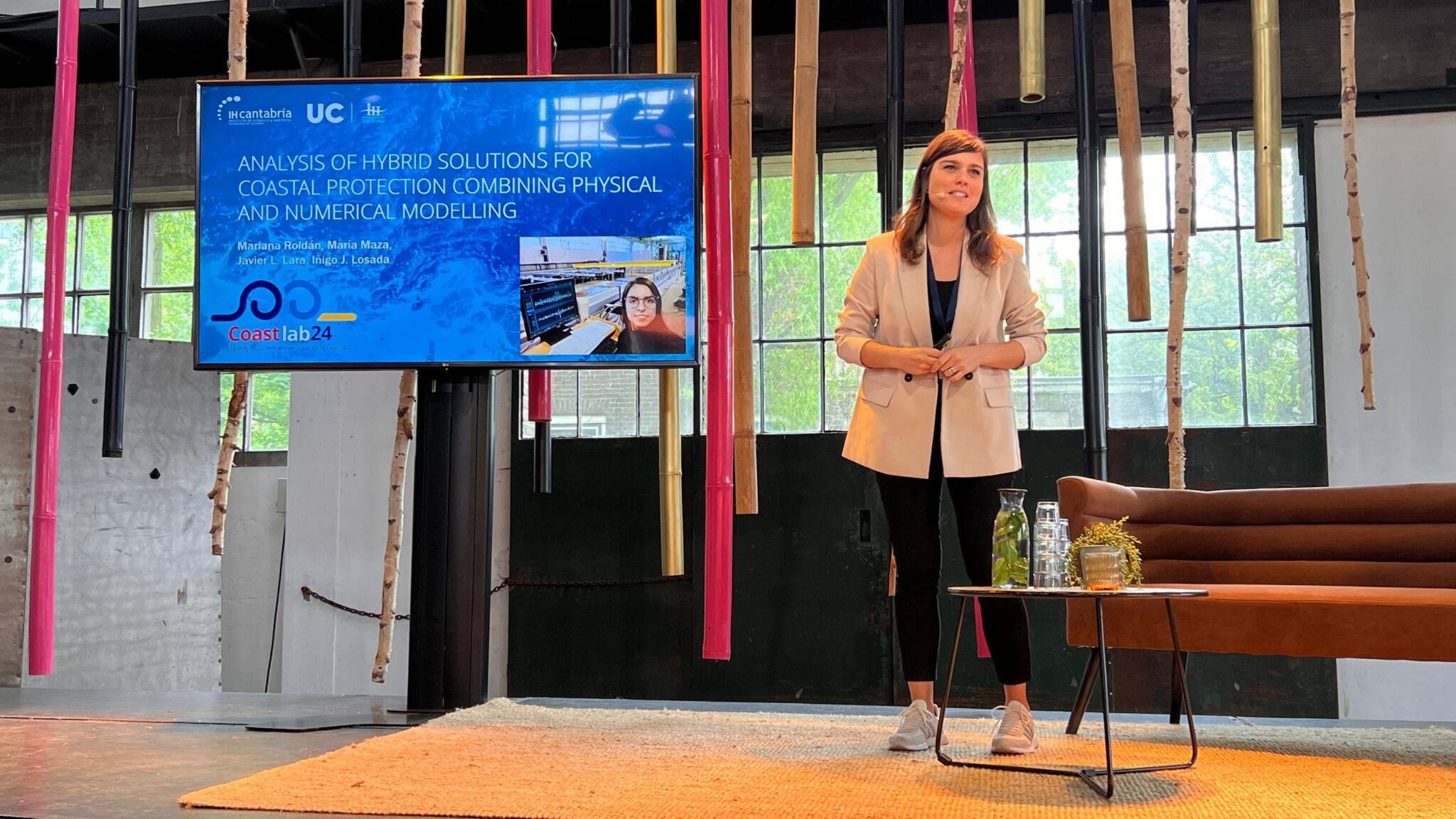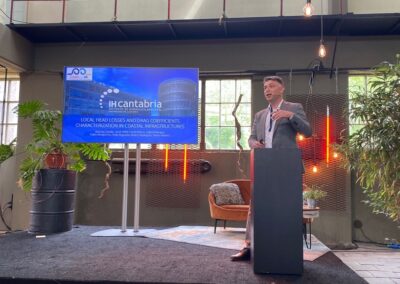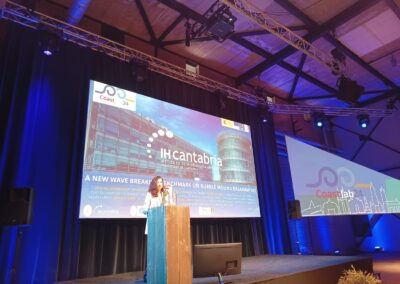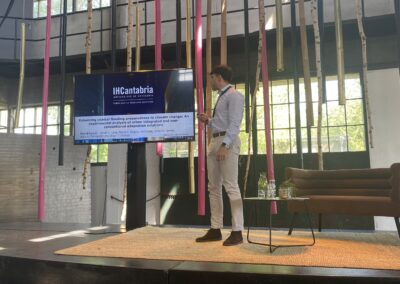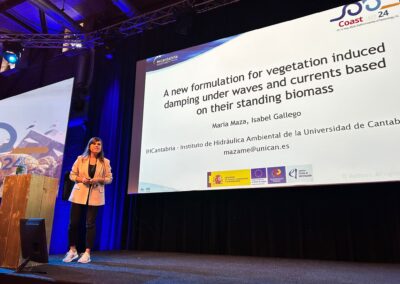IHCantabria participated in the International Congress on the Application of Physical Modeling in Coastal Engineering and Science, CoastLab24
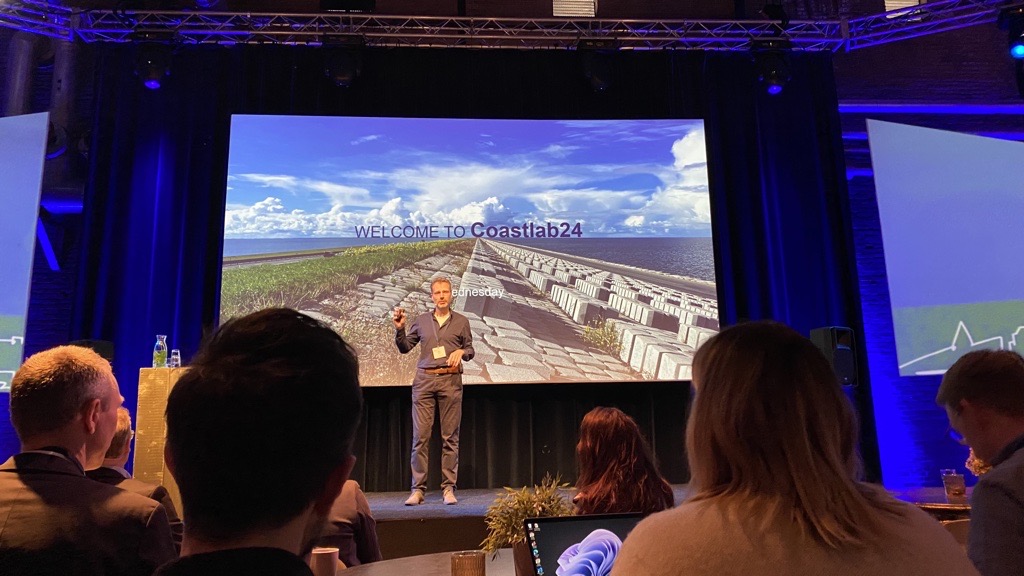
Bas Hofland, chairman of the local CoastLab24 organizing committee, on the opening day of CoastLab24.
CoastLab is a conference that focuses on physical modeling in coastal engineering and science. Its 9th edition is held in Delft, The Netherlands, under the auspices of the International Association for Hydro-Environmental Engineering and Research (IAHR).
This week, research staff from the Institute of Environmental Hydraulics of the University of Cantabria(IHCantabria) participated in the 9th edition of theInternational Congress on Physical Modeling in Coastal Engineering (CoastLab24), which took place in Delft, The Netherlands, from May 13 to 16. This event was organized by Delft University of Technology, under the auspices of the International Association for Hydro-Environmental Engineering and Research (IAHR).
CoastLab24 builds on the success of previous conferences held in Porto (in 2006), Bari (in 2008), Barcelona (in 2010), Ghent (in 2012), Varna (in 2014), Ottawa (in 2016), Santander (in 2018) and Zhoushan (in 2020). IHCantabria was the host institution for the 7th edition of CoastLab18, which was held from May 22-26, 2018 at the Palacio de la Magdalena, in Santander, where 175 attendees from 18 countries gathered.
The 9th edition of CoastLab brought together in Delft around 150 researchers and professionals in the field of coastal engineering. On behalf of IHCantabria, the following participated: Álvaro Álvarez Vázquez, María Maza Fernández, Antonio Tomás Sampedro, David Lucio Fernández, Beatriz Rodríguez Fernández, Alessandro Romano and Mariana Roldán Upegui (whose paper was presented by María Maza).
CoastLab24’s schedule features, as keynote speakers, Heidi Nepf (whose presentation addressed “Physical modeling of coastal vegetation to improve the design of green infrastructure”), Josep R. Medina (who spoke on “Breakwaters in a living environment”), Emiel Boerma and Coen Kuiper (in whose presentation they analyzed the role of physical modeling in the rehabilitation works of the Afsluitdijk (closing dike, in Spanish), the dike that connects the north of North Holland with the province of Frieslandin the Netherlands).
In the coastal zone, multiple works are being carried out related to impacts, adaptation and mitigation of climate change; multifunctional and nature-inclusive designs; industrial outfalls; port and marine terminal development; as well as wave, wind and tidal energy.
In addition to developments around classic topics (such as flood safety, wave-structure interaction, coastal structures and modeling techniques), CoastLab24 presented advances in specific topics, such as modeling considering nature-based solutions (SbN), infragravity waves, field measurements and renewable energies. Due to the relevance of these topics, the content of some of the papers presented at this congress has also been published, as scientific articles, in the Coastlab24 Thematic Series of the Journal of Coastal and Hydraulic Structures (JCHS).
To address coastal challenges with advances that leverage the use of physical models and/or (field) measurements, it is necessary to foster the development of research related to the following topics: hydrodynamics and coastal processes; coastal flooding, flood prevention and coastal protection; coastal and ocean structures, breakwaters and revetments; scour, sediment transport, morphology; wave-structure interactions, loading and response; wave run-up and overtopping; laboratory technologies and synoptic measurement systems (e.g., laser scanning, imaging, motion tracking, particle image velocimetry); coastal field measurement and monitoring; wave synthesis, generation, and analysis; scale effects and uncertainty analysis; composite modeling and validation (physical, numerical, field, and AI); extreme event assessment and mitigation; tsunami hydrodynamic impacts and mitigation; mixing and water quality; physical modeling case studies; navigation and ship motions; infragravity waves.
Since the foundation of Deltares in 1929, as a spin-off of the Delft University of Technology, high-level physical models in coastal engineering have been developed in Delft. Therefore, the IAHR Technical Committee on Coastal and Maritime Hydraulics decided to hold the main conference focusing on physical modeling in coastal engineering in Delft.
More information about the CoastLab24 congress, through the following link: https://proceedings.open.tudelft.nl/coastlab24
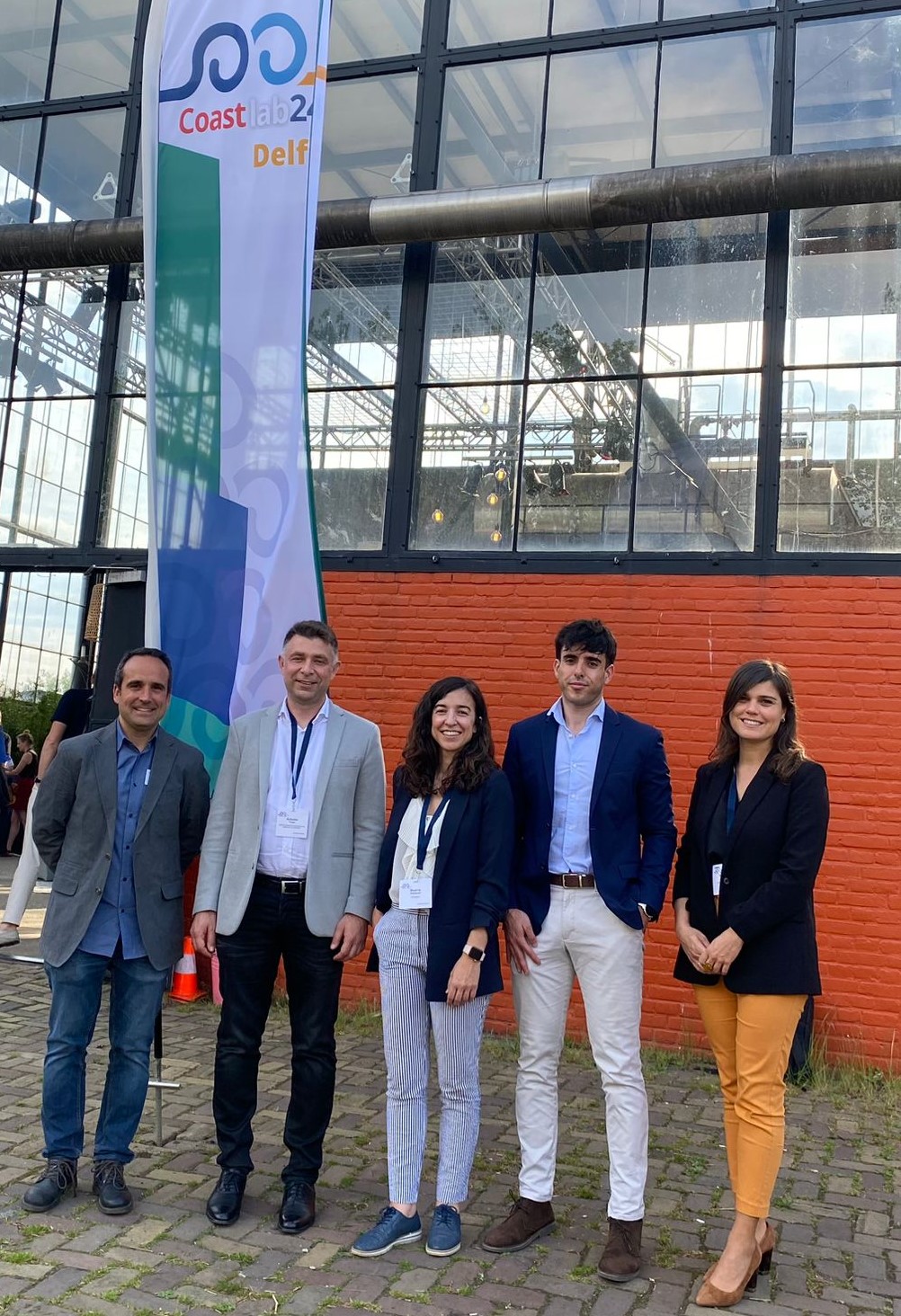
IHCantabria research staff who moved from Santander to Delft to contribute to CoastLab24. In the photo are, from left to right: Álvaro Álvarez Vázquez, Antonio Tomás Sampedro, Beatriz Rodríguez Fernández, David Lucio Fernández and María Maza Fernández
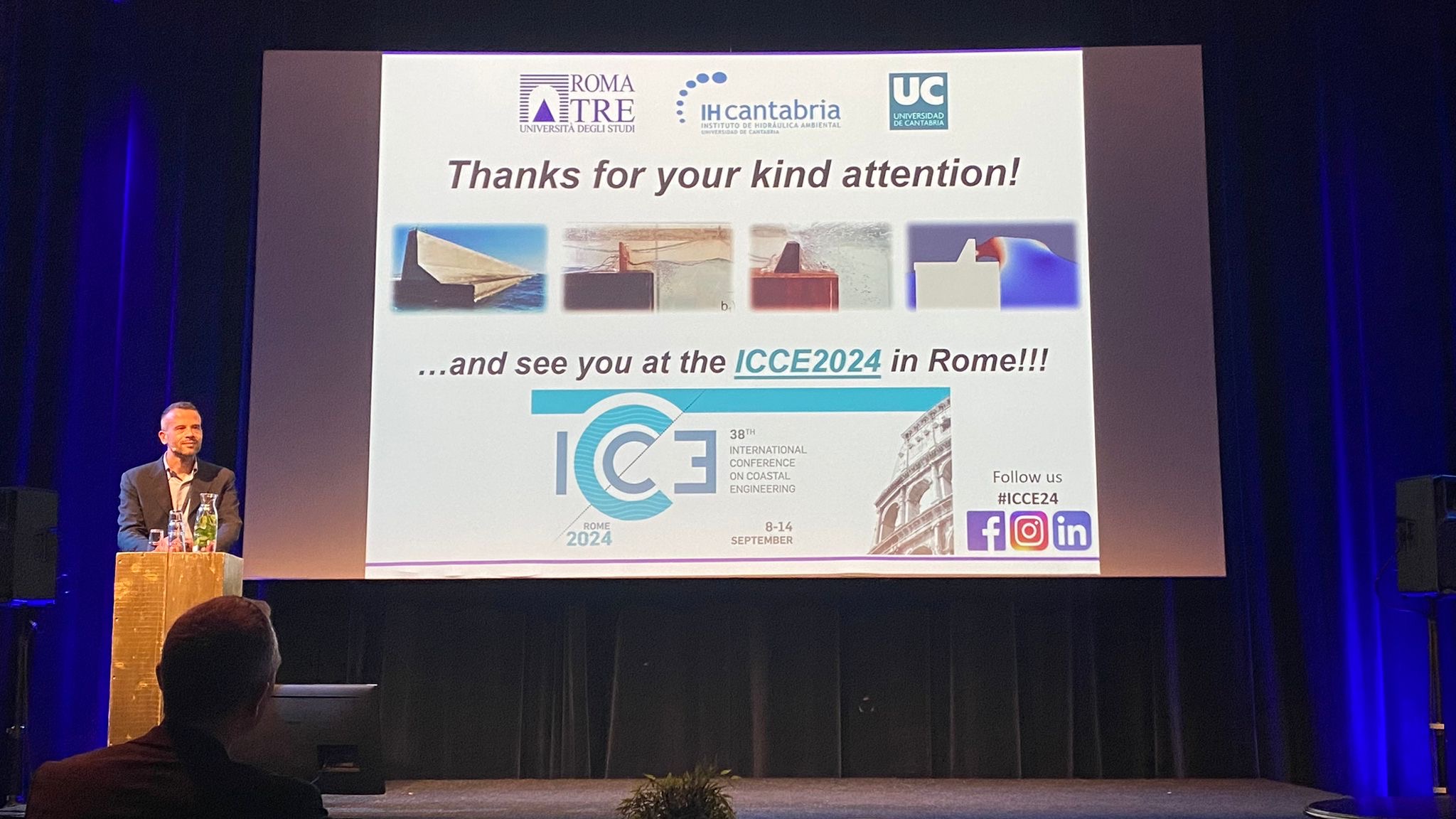
Researcher Alessandro Romano (pictured above) traveled from Italy to Delft to present a paper as a full professor at the University of Roma Tre and as a seconded researcher at IHCantabria.
Researcher María Maza presented one paper on her own behalf and another (whose cover is shown in the photo below) was presented on behalf of researcher Mariana Roldán Upegui.
